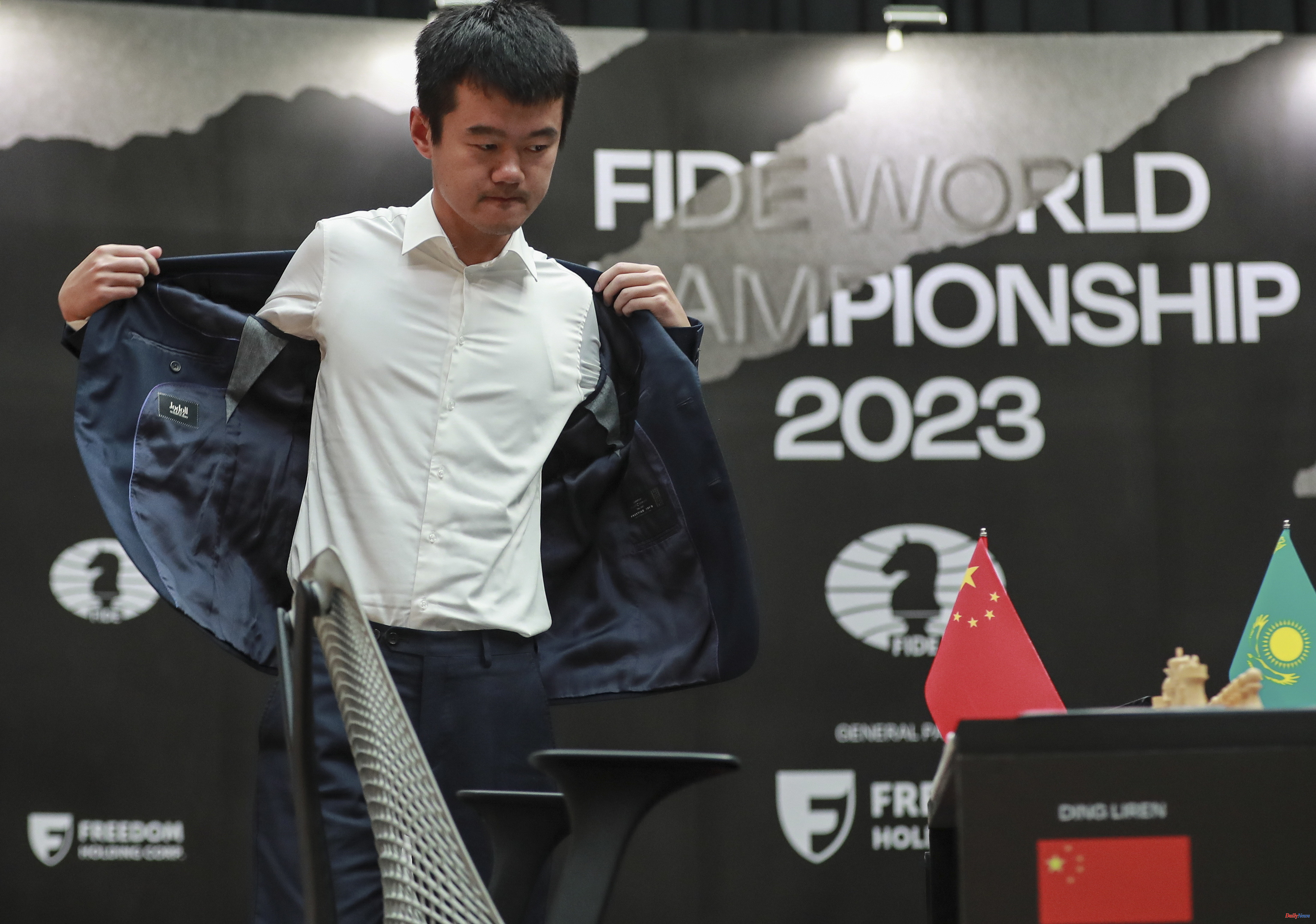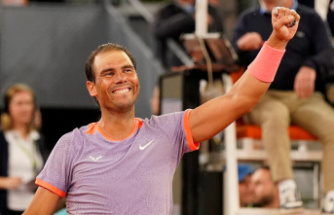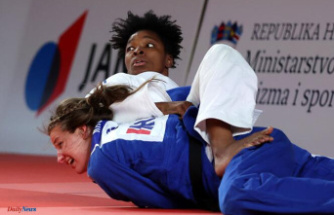Succeeding a myth is never easy. Karpov met the challenge with flying colors when Fischer left chess and Ding Liren now faces a similar mission, to prove that he is not an impostor. The new world champion won the title in a thrilling triumph against Ian Nepomniachtchi, after the resignation of Magnus Carlsen. The Chinese start off on the right foot, because in Astana we have seen the resurrection of classical (or slow) chess after 14 exciting games and four rapid tiebreakers that ended with a heart-stopping ending.
An era that seemed dark is inaugurated and it does so in a luminous way, with the most spectacular Chess World Cup in recent decades. Beautiful chess has been practiced in Kazakhstan, undoubtedly imperfect, but capable of moving fans. On the board, the wrinkle is beautiful and the exaggerated symmetry can be a glanders.
Ding has been an irreducible hero, a cat who spent almost all of his lives coming back from behind again and again. They knocked him down several times and he always got up, never doubting his new style, always on the wire. His creativity was a delight to behold, even if it cost him to often end up with ruined pawn structures, which a conservative chess player would never do. He made up for it with an almost endless catalog of resources.
On the other hand, Ding opted to attack even when it seemed suicidal to do so, convinced that Nepo's weak point is defense. In the decisive tie-break game, the Russian somehow provoked that attack and Ding was in a huge time hurry, but at the moment of truth he played it again. He could be expensive, but he was expensive, the coin fell on the side of the bravest.
The duel has been interesting for many reasons, starting with the clash of styles that has led to the transformation of the Chinese grandmaster, seconded by the bohemian Hungarian Richard Rapport. Faced with Nepo's Cartesian game, armed to the teeth thanks to the power of the Russian team, Ding has given a recital of creativity, finding solutions to the most complex problems.
If it is always said that soccer finals are defined "by details", imagine what can happen on a board, where choosing between two plays (and the number of alternatives is almost always much greater) requires hundreds or thousands of positions to be calculated different. When the pace of the game is also faster than normal, the challenge of hitting the right path is directly a chimera.
In Astana, Nepo and Ding finished the series of long games tied at seven and launched into the short games with the same voracity, without fear or shame, although with a lot of nerves. The World Cup ended as it began, with the two candidates slapping each other in the middle of the track, but without losing their education as in other sports.
It was the fifth time that a Chess World Cup was decided in rapid games, for some an aberration. As if a tie in the 1,500 sprint was resolved with a hundred-meter race. It doesn't look like FIDE is going to change the formula, however. The previous system, when you had to win six games (Fischer wanted there to be ten) and the draws didn't matter, gave rise to endless confrontations, lasting several months, which from the outset means an unaffordable expense and an exaggerated parenthesis in everyone's life. the people involved. He had his point, of course. Another historical solution, the most unfair of all, was to give the champion the privilege of keeping the crown in case of a tie.
In the past, Kramnik won the 2006 World Cup over Topalov thanks to rapid chess, and Anand over Gelfand in 2012. Carlsen, the most fond of this formula, won two such titles, against Karjakin in 2016 and against Caruana in 2018.
In Astana, the first tiebreaker game played this Sunday was crazy. Ding started with white, something similar to taking the first penalty, especially if he managed to convert it. He stayed better, actually, but then he made the most natural mistake in the world and in an instant it looked like he could even be mated. This is the madness of chess, so difficult for the layman to understand.
Suddenly, Ding had to change his beautiful attack for the thankless task of defending, which the two have done worse in this World Cup. Nepo came to sacrifice the queen, which is usually the prettiest set that can be seen in a game of chess. His queen was untouchable, but the gesture remained there. The Chinese found the only solution to his vital enigma and, incredibly, the game returned to the path of equality, until the tables were signed.
In the second game Nepo chose a sneaky line from the Spanish opening and Ding was inaccurate, but somehow managed, at the cost of wasting time as usual, to get to a long even ending. New tables and two more points of tension in the environment.
In the third, Ding opted for a simpler scheme, with a minimal but stable lead. Too little to break the Russian's resistance. It was a round of rest, dangerous for the Chinese. Ding had never beaten Nepo with black. After three draws, Anish Giri joked: "Rapid chess is dead."
The fourth was a sensational climax. In a new Spanish opening, Nepo prepared a new novelty, which turned out to be a frog. The biter bit. Ding played very fine and the Russian was left with a very sad bishop. The Chinese, however, broke in the center without calculating the consequences well and was worse off again. He flipped the tortilla back into the air, turning around. The alternatives followed one another, until the Chinese set up a new, very risky trap. Nepo didn't see her and, after several clever kicking moves, he had to give up.
Ding Liren, world champion. He is the first Chinese player to win the overall title.
According to the criteria of The Trust Project












